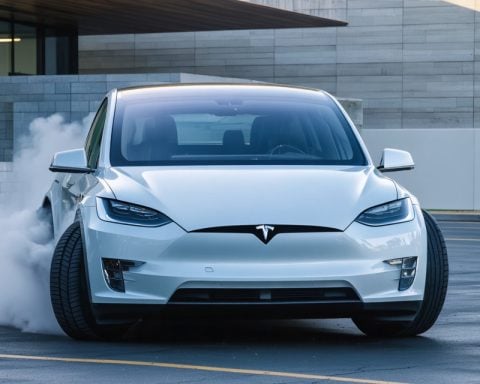Wisconsin has taken a bold step towards a greener future. The state proudly inaugurated its first federally sponsored electric vehicle (EV) charging stations this Tuesday, marking a significant advancement in its commitment to electric mobility. Located at Kwik Trip locations in Ashland, Menomonie, and Chippewa Falls, these stations are just the beginning. More charging facilities are slated to emerge in various communities across south-central Wisconsin.
The new stations are strategically positioned to serve both residents and visitors, making long-distance travel more convenient for electric vehicle users. Upcoming locations include Citgo in Oxford, several Kwik Trip sites in Delavan, Baraboo, and Mount Horeb, and other noteworthy spots like Shell in Deforest and Tesla Supercharger in Janesville.
According to Governor Evers, enhancing the EV ecosystem is essential for adapting to the evolving needs of Wisconsin’s workforce and economy. He emphasized the importance of transitioning towards cleaner and more efficient modes of transportation.
This initiative receives significant support from the National Electric Vehicle Infrastructure Formula Program, with a considerable investment of $23 million by the Wisconsin Department of Transportation and Governor Evers aimed at expanding the state’s EV infrastructure.
As the rollout continues, Wisconsinites can look forward to a more sustainable and accessible transportation future, contributing to a cleaner environment for generations to come.
Wisconsin Leads the Charge: Your Guide to the State’s New Electric Vehicle Charging Stations
Wisconsin’s Green Initiative: Expanding Electric Vehicle Charging Infrastructure
Wisconsin is stepping firmly into the future of electric mobility by launching its inaugural federally sponsored electric vehicle (EV) charging stations. These facilities, located at Kwik Trip locations in Ashland, Menomonie, and Chippewa Falls, mark a pivotal moment in the state’s commitment to sustainability and clean transportation. This article explores the implications of this initiative, including features, benefits, and future developments.
Key Features of the New Charging Stations
– Strategic Locations: The charging stations are placed at convenient spots, particularly at popular Kwik Trip convenience stores, making them easily accessible for both residents and travelers. Future sites include Citgo in Oxford and several other convenience stores across south-central Wisconsin.
– Fast Charging Capabilities: The new stations will likely offer high-speed charging, significantly reducing downtime for EV users, making electric vehicles more viable for long-distance trips.
Use Cases for Wisconsin’s EV Charging Network
1. Daily Commuting: Residents can charge their vehicles while they shop or run errands, seamlessly integrating EV usage into their daily lives.
2. Long-Distance Travel: The placement of chargers along major routes enhances the feasibility of using electric vehicles for interstate travel, relieving range anxiety for EV users.
3. Tourism Boost: As charging stations emerge in tourist areas, EV users can explore Wisconsin’s attractions without worrying about charging access.
Pros and Cons of the EV Initiative
Pros:
– Environmental Impact: Transitioning to electric vehicles contributes to reduced carbon emissions, promoting cleaner air and a healthier environment.
– Economic Growth: Investments in EV infrastructure can create jobs in the state as new facilities are built and maintained.
Cons:
– Initial Investment Costs: The setup costs of charging stations can be substantial, although supported by federal funding.
– Range Anxiety: Some potential EV users may still hesitate due to concerns about charging availability, despite new infrastructure.
Pricing and Financial Implications
The state of Wisconsin has allocated $23 million through the National Electric Vehicle Infrastructure Formula Program to enhance its EV facilities. This financing aims to ensure that EV charging becomes a more accessible option for all residents. While the charging service fees for users have yet to be disclosed officially, competitive pricing strategies are anticipated to encourage usage.
Trends and Future Predictions
As more charging stations are unveiled, trends indicate a growing acceptance of electric vehicles among consumers in Wisconsin. A steady increase in EV ownership may lead to further investments in infrastructure and enhanced government policies to promote sustainable transportation solutions.
Innovations in Electric Vehicle Infrastructure
The newly inaugurated charging stations are part of a larger national trend towards investing in EV infrastructure, often incorporating cutting-edge technology to improve the overall charging experience. These advancements could include:
– Mobile App Integration: Users may benefit from apps that allow real-time monitoring of charging station availability, reservation features, and payment processing.
– Solar-Powered Chargers: Future installations may explore sustainable energy sources, such as solar panels, to power the charging stations sustainably.
Conclusion
Wisconsin is making substantial strides towards a greener transportation future with its first electric vehicle charging stations. As the infrastructure expands, residents can look forward to more sustainable commuting options, contributing to a healthier environment for future generations.
For more information on Wisconsin’s green initiatives and EV infrastructure, visit the Wisconsin Department of Transportation.


















